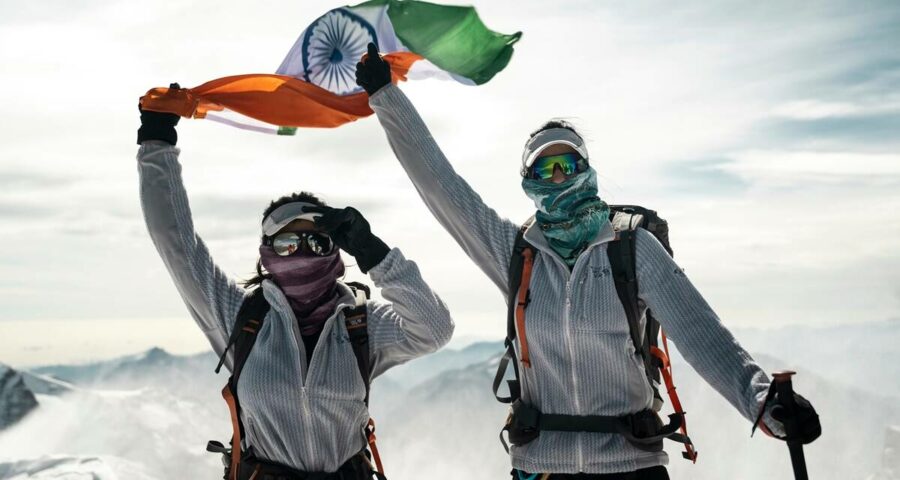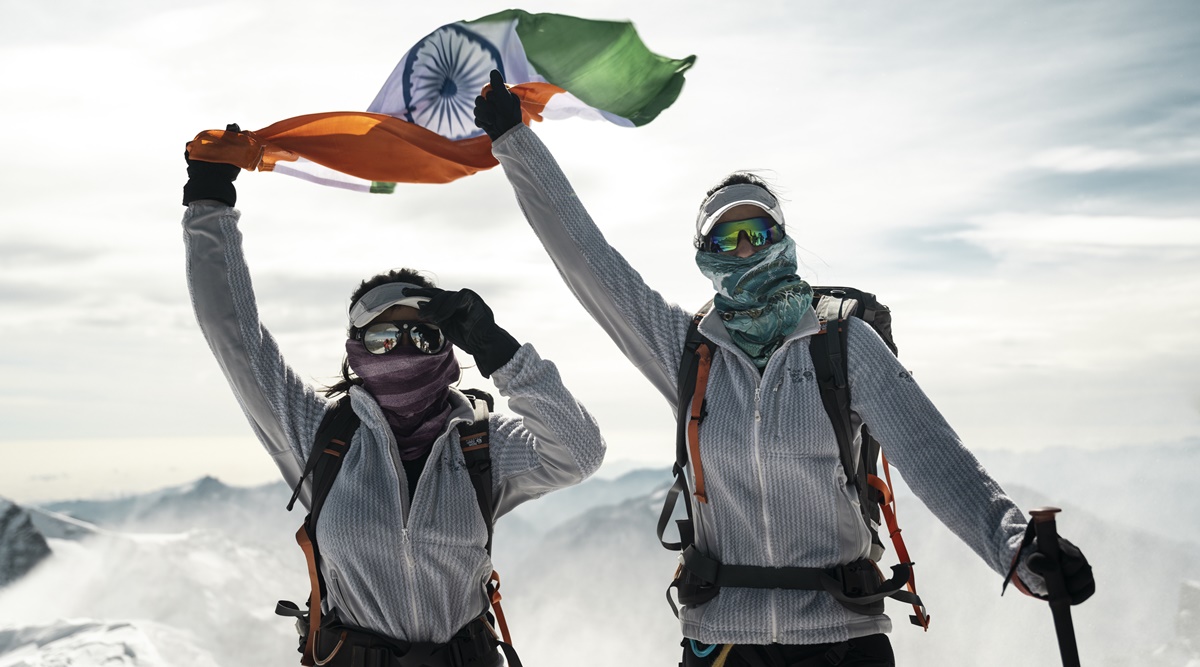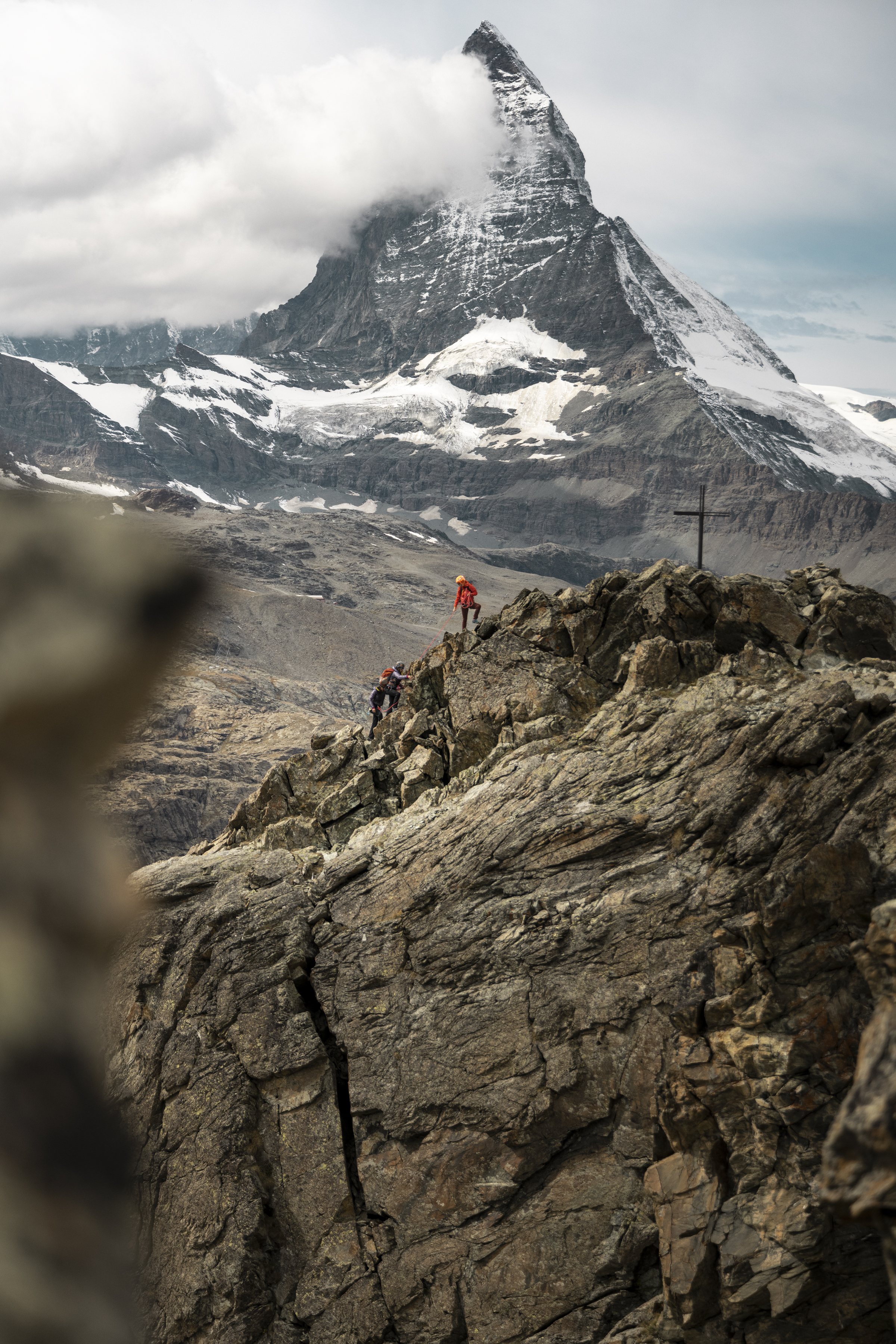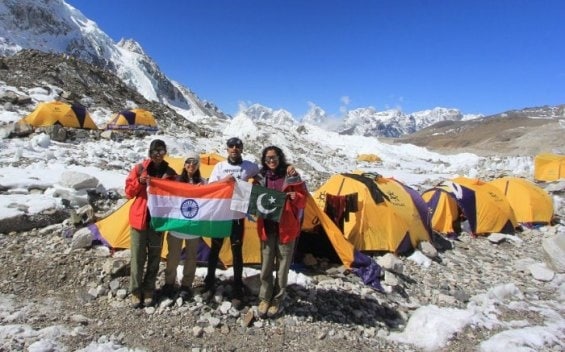Twins who scaled Everest at 21, complete another adventure mission, this time multi-peaks.
What’s there to look up to for a climber who summited Mount Everest at 21? A lot, in case you happen to be Tashi and Nungshi Malik, the adventure-seeking twins who celebrated their own unlockdown by scaling the Swiss Alps. Now 30, the outdoorsy women from Dehradun, after being on the roof of the world, trekked to the two ends of the earth – South and North poles. Their dazzling CV, a dream for all mountaineers, also has the conquest of the Seven Summits, the highest peaks of the seven continents.
Their latest expedition to Mount Breithorn and Allalinhorn in the Alps, the two 4000m plus summits, had half the ascent as compared to Everest but the challenge didn’t get scaled down in the same proportion. “It was night climbing and we could summit in a day and come back. We have never had that before. Most of our expeditions in India start out with a week of going ahead to the base of the mountain and then starting the ascent. But this was just a one-day summit and return which felt nice because it meant we could cover a lot more peaks in the short time that we were here,” say the sisters.
https://www.instagram.com/p/CUW2klNsIzy/
A post shared by Tashi & Nungshi Malik, FRGS (@twinclimbers)
It was the climb to the Riffelhorn mountain that tested their skills the most. “It could be warm and sunny and then turn windy at the summit. But Riffelhorn was a purely rock summit. We are used to snow peaks. So this was very different for us. We were scared to death because when we would look down, we would see this huge glacier and the surrounding peaks with that weather.”
For these globe-trotting women always in search of new heights, there are twists and turns at every corner. Nungshi says that the most arduous of climbs has been Denali, Mt McKinley (6,190 m) in Alaska, North America. It’s where temperatures dip to -50, -60. “There was one mountain where we felt the wind chill was more than that on Everest. Those who do Denali are established as professional mountaineers because that’s quite the effort. Weather changes so quickly, at one point it would be like 12 degrees and that would dip to -10 in a matter of hour.”
Tashi found Mt Cook in New Zealand very tough. “If you look at the Summit, it is only 3,724m but it was so technical. The time taken to climb Mt Cook is equal to the time taken to climb Everest. So you can imagine how hard it is to climb Mt Cook. Very few people have had success there. People usually say you have to climb Everest first and then come to Mt Cook. But among the Seven Summits, Denali was definitely the toughest.”
https://www.instagram.com/p/CKtt6QTHaYU/
A post shared by Tashi & Nungshi Malik, FRGS (@twinclimbers)
xxx
The Malik sisters discovered their love for the sport in 2010 when their father, Col Virendra Singh Malik, enrolled them at the Nehru Institute of Mountaineering in Dehradun. As kids, they have lived in several states when their father moved around in army postings.
Nash and Tash fondly remember travelling with their father and experiencing different cultures as kids. Recalling their childhood at Lawrence School in Lovedale, a little town on the Nilgiri Mountains in Tamil Nadu, Nungshi said, “Having an army background helps you in adapting to various places. You don’t freak out. You are used to moving like nomads. When we travel, we immediately feel we are a part of that place because we are so good at adapting. That comes with travelling in India because we have so much diversity. Our dad always made sure we had adventure growing up. When we were in Lawrence, we went to Nilgiris for a hike but we never climbed as such.”
https://www.instagram.com/p/CFmdAptnL2Q/
A post shared by Tashi & Nungshi Malik, FRGS (@twinclimbers)
Their big climbs started when they were 18 in the Indian Himalayas. “It changed our lives when we realised ‘Okay, this is something we really enjoy.’” Nash and Tash have been a team since then and there has been no looking back. However, the sisters admit that they do have their weak moments and even arguments at times.
“We are quite vulnerable on most occassions. When it comes to decisions on a mountain, we tend to follow our gut. There are moments when we are highly emotional and we do have arguments at times. Mom is really happy we haven’t pushed each other from the summits because we do have our moments,” Nungshi laughs.
During such difficult moments when the twins are faced with life-threatening decisions, they rely on Tashi’s instincts. “Since I am the elder sister by 21 minutes, I tend to give Tashi the credit for her decisions. If she says something with surety, I say sure, we’ll go with you this time. Her sense of direction in the mountains has always worked for us. I never go with my gut feeling, it is always her’s. I leave the decision to her,” said Nungshi.
xxxx
The women love the challenges mountains provide. “We thrive under pressure. In the mountains, we have last-minute decision making and these are things which we always enjoy. We haven’t really missed the comforts of home. The only time we remember our parents is when we reach the summit. When we say goodbye to our family at the airport, we literally switch off and get disconnected from them and solely focus on our expeditions.”
Nungshi, who loves to collect rocks and paint them as a side-hobby, said, “When we climb mountains, it is absolute solitude for us and the pandemic was no different. We were pretty much staying active through and through. Us Army kids have this whole thing with discipline. So we would work out in the house. The pandemic was a good way for us to explore other things that we were passionate about, whether it was dancing or drawing. The pandemic that way brought out the best in us.”
A post shared by Tashi & Nungshi Malik, FRGS (@twinclimbers)
“We are super active at home, always doing things. There is never a moment when we would be in bed or watch television. I don’t know why though. We are set on this ‘get-active’ zone. We are just constantly moving,” added Tashi.
xxxx
Peace and summits
As goes for every extraordinary sports story that transcends boundaries and enemities, so does this one. India and Pakistan’s friendship was at its peak, quite literally, when the twins were joined by the first Pakistani woman to ever scale Mount Everest – Samina Baig.
Making a statement from the highest point in the world, the three girls developed a special bond on their long journey and hoisted their flags side-by-side once they reached the summit. “These boundaries really don’t matter there. When you are at the summit, you are celebrating life, celebrating people. Even with the Pakistani girl, she almost became our third sister. The Nepalis call us the three ketis which means three girls/sisters. We formed a bond over the journey together. We could write a book on it, it was so special. Just the idea that we are from different countries, and that she is from Pakistan did not mean anything to us,” said Nungshi.
“We have never seen any boundaries. The mountains teach us that no matter which country we come from, we are there for our passion and our goal. It is a very uniting force. For us as travellers, there are so many moments when we meet people from across the world,” she adds.
Tashi explains that during their time in Nagaland and Manipur, the insurgency and conflict was huge but beyond their comprehension. That led to the Malik sisters deciding to pursue studies in ‘Peace and Conflict Resolution’, which helped them understand tricky situations better and appreciate cultural difference, rather than dissing it. “We wanted to deepen our understanding of not only people, the challenges and the conflicts but also how to mediate and negotiate between two extremely difficult and conflicting situations and make things work.
“How do you come up with win-win solutions for competing forces? For us, understanding that was very crucial because we were very used to making an assumption quickly on the basis of what we saw or heard but conflict studies gave us a chance to take a step back and think of it from other lengths. There were different lenses that we had to try on to understand the situation. So it really helped us. We also knew that this was something that may help us in the future because we come across so many people in different places and we all have such different characteristics. Even in our sport, it is highly important because we are climbing with people from all around the world. We have cultural differences and conflict studies in that sense is something that really strengthens our knowledge about people and places and seeing things differently and finding solutions. It was very enlightening,” said Tashi.
Source: Read Full Article




